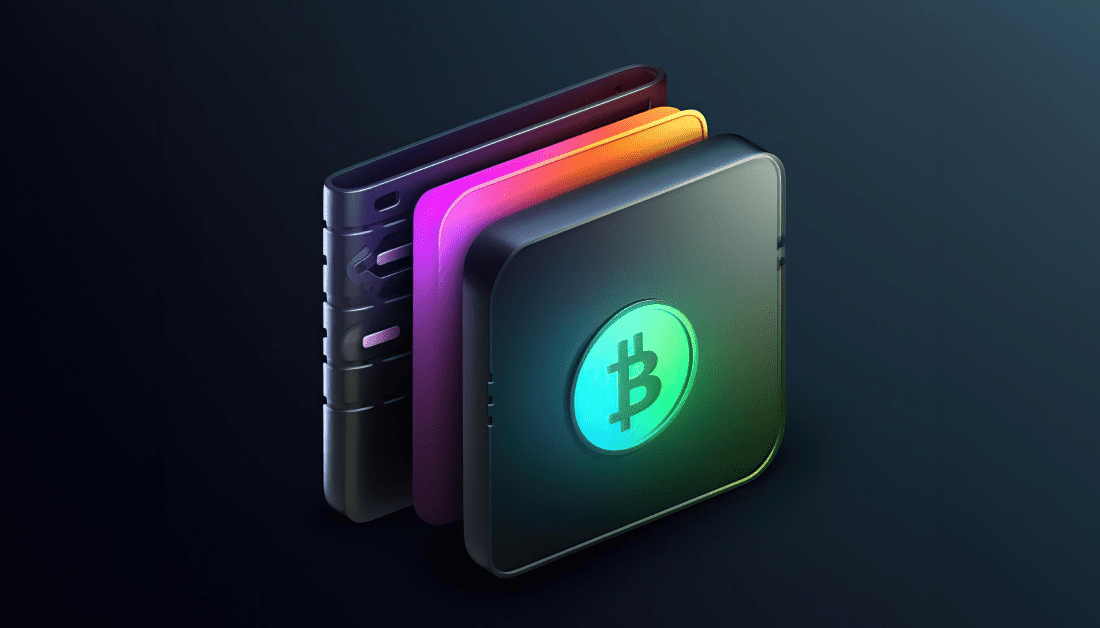
Crypto wallets are essential tools in the cryptocurrency ecosystem, designed to store private keys and provide digital asset access safely. Unlike traditional wallets that hold physical money, crypto wallets do not store the actual cryptocurrency but instead, store the private keys needed to access and manage these digital assets on the blockchain. This article explores the different types of software crypto wallets, their importance, benefits, and the distinctions between software and hardware wallets.
Types of Software Wallets
Software or hot wallets are applications installed on connected devices like computers or smartphones. They are always connected to the internet, facilitating easy access to digital assets and decentralized applications (dApps). Here are some common types of software wallets:
- Online Wallets: These wallets store keys in an app or other software, often protected by two-step encryption. Examples include Coinbase Wallet and Exodus. They offer user-friendly interfaces and are suitable for beginners.
- Browser Extensions: Wallets like MetaMask and Phantom operate as browser extensions, allowing seamless interaction with dApps directly from the web browser.
- Mobile Wallets: These wallets, such as Trust Wallet, are installed on smartphones and provide convenient access to digital assets on the go.
Importance of Software Wallets
Crypto wallets are crucial because they manage private keys necessary to prove ownership of cryptocurrencies and authorize transactions. Losing access to these keys means losing access to the digital assets. Therefore, keeping the wallet and its associated keys secure is paramount.
Benefits of Software Wallets
- Ease of Use: Software wallets are typically easy to set up and use, making them accessible for crypto newcomers. The interfaces are designed to be user-friendly, allowing users to manage their assets efficiently.
- Accessibility: Software wallets are connected to the internet and provide instant access to funds and dApps. This makes them ideal for frequent transactions and daily use.
- Compatibility: Many software wallets support multiple blockchains and can store various digital assets, giving users flexibility.
Risks of Using Software Wallets
Despite their benefits, software wallets also come with risks:
- Security Vulnerabilities: Software wallets are connected to the Internet, making them susceptible to online attacks, including hacking and phishing.
- Reliance on Device Security: The security of a software wallet depends on the security of the device it is installed on. Malware or viruses on the device can compromise the wallet.
Software vs. Hardware Wallets
Storage: Both types of wallets store private keys rather than the cryptocurrencies themselves, which remain on the blockchain. Software wallets store keys on internet-connected devices, while hardware wallets store keys on a physical device isolated from the internet.
Security: Hardware wallets offer superior security as they store private keys offline, reducing the risk of online attacks. Software wallets, although convenient, are more vulnerable to cyber threats.
Accessibility: Software wallets are more accessible since they are always connected to the internet and available on smartphones and computers. Hardware wallets need to be connected to an internet-enabled device, making them less convenient for frequent transactions.
Cost: Software wallets are generally free to use, while hardware wallets, due to their physical nature and advanced security features, require a purchase cost.
Example of a Multichain Wallet: XDEFI Wallet
XDEFI Wallet is a non-custodial, multichain wallet allowing users to manage various digital assets across multiple blockchains. Key features of XDEFI Wallet include:
- Swapping and Bridging: Users can swap and bridge over 10,000 assets across 30 blockchains.
- Permissionless Onboarding: Anyone can create an XDEFI wallet and start trading without restrictions on swaps and withdrawals.
- dApp Connectivity: The wallet can connect to decentralized applications across supported blockchains, enhancing the user experience.
- NFT Gallery: Users can display their NFTs from various blockchains in a customizable gallery.
Conclusion
Software wallets play a vital role in the cryptocurrency ecosystem by providing a convenient and accessible means of managing digital assets. While they offer significant benefits in terms of ease of use and accessibility, they also come with security risks. Users should weigh these factors carefully and consider combining software wallets with hardware wallets for enhanced security. Using a non-custodial software wallet like XDEFI Wallet allows users to maintain control over their private keys while enjoying the flexibility of interacting with multiple blockchains and dApps, making it a robust choice for crypto enthusiasts.



